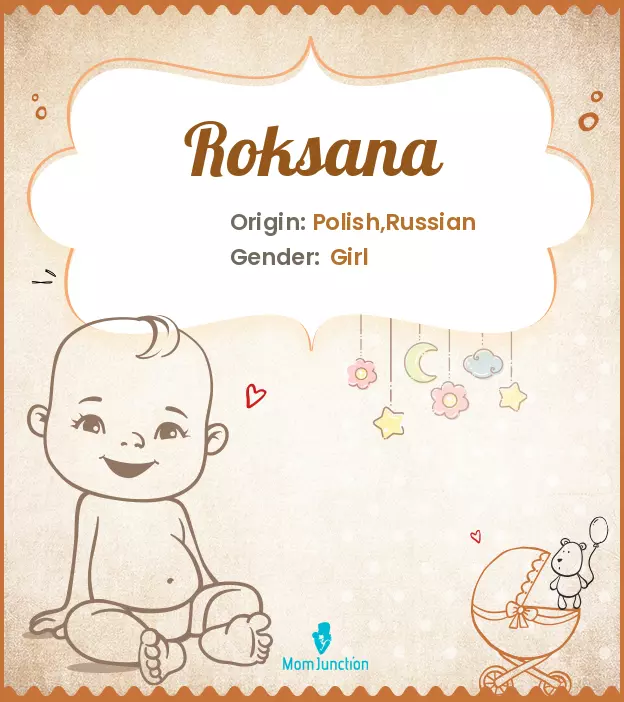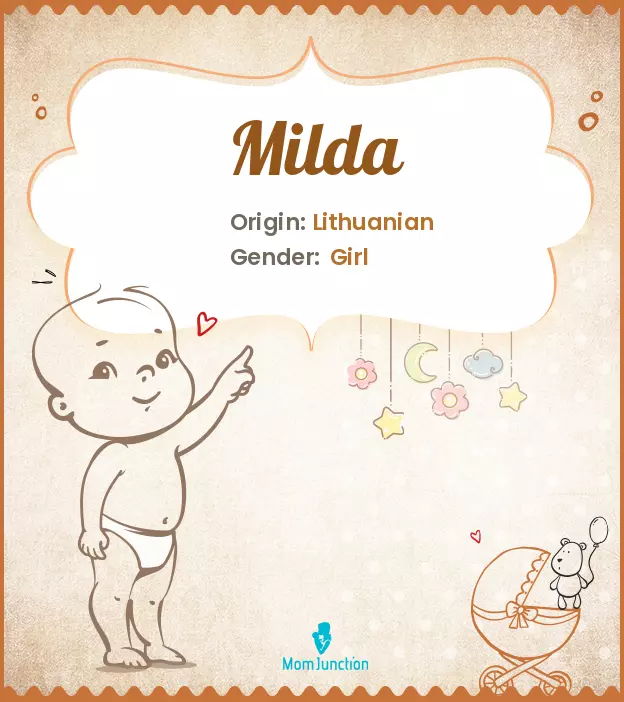
Image: Shutterstock
Originating from the Swiss German and Alsatian roots, Amish are a group of ethno-religious people. Amish last names or surnames are a unique way to know about the community. Reserving to plain dresses, a simple lifestyle, and slow to adopt modern technology, they believe in Christian pacifism and have several Anabaptist Christian church fellowships, which explains the extensive presence of Christian surnames in this community. Their surnames reflect their heritage from France and Swiss-Germany (1). Additionally, the surnames often indicate familial ties and occupations and offer insight into their way of life and social structure. Keep reading this post as we explore Amish last names or surnames to learn in-depth about their ancestral roots, religious beliefs, culture, and history.
Key Pointers
- Amish people originate from the Swiss German and Alsatian roots.
- They believe in Christian pacifism and have Anabaptist Christian church fellowships.
- The presence of Christian surnames among the Amish is common.
- Their surnames reflect their heritage from France and Swiss Germany.
100+ Popular Amish Surnames With Meanings
Amish is a closed community that suggests marrying within the community. Additionally, the evangelical, missionary, and influence of other religions are also restricted among this group. Therefore, the list of Amish surnames is not so long (2).
Popular Amish Last Names
Most Amish people are settled in Pennsylvania state in the US. Therefore, the majority of famous and popular Amish last names can be found in this region (2).
1. Amman
Amman is one of the most popular Amish last names starting with A. Meaning ‘official,’ Amman or Ammann is the Alemannic form of Amtmann. It refers to an administrator or official, including a tax farmer. The 18th-century Swiss-Russian botanist, Johann Amman, was a notable bearer of this surname.
2. Beiler
Originating from the Germanic roots, this surname means ‘measuring stick’ via the Middle High German word ‘beile.’ An American businesswoman, Anne F. Beiler, who founded Auntie Anne’s pretzels, bears this surname.
3. Fisher
A Germanic occupational surname, the surname Fisher comes from the surname Fischer, meaning ‘fisherman’ in German. A well-known bearer of this surname is Abbi Fisher, a former American World Cup alpine ski racer.
4. King
King is one of the popular surnames among the Amish people settled in Lanchester County, Indiana. It is a Swiss German surname, referring to someone who acts in a kingly manner. An American Chicago blues guitarist, singer, and songwriter, Robert L. King, popularly known as Bobby King, bore this surname.
5. Lapp
Originating from the Middle High German word ‘lap(pe),’ this surname means ‘cloth’ or ‘rag.’ It is a metonymic occupational name for someone who mends clothes or shoes. It was borne by a well-known carpenter-cabinet maker of 19th century America, Henry Lapp.
6. Lehman
Lehman is one of the most popular American surnames. Derived from the Middle High German word ‘lehenman,’ this surname means ‘vassal,’ or ‘liege man.’ The notable bearers of this surname are the three Lehman brothers who founded the American global financial services firm Lehman Brothers Inc. in 1850.
7. Martin
Martin is a common Mennonite surname that can also be found among the Amish community. It comes from the Roman name Martinus, associated with the Roman God of war, Mars, meaning ‘male’ via the Latin word ‘mas.’ One of the founding fathers of the United States, Alexander Martin, bore this surname.
 Quick fact
Quick fact8. Stoltzfus
One of the most common and popular Amish surnames, Stoltzfus can be found in every Amish community settlement. Nicholas Stoltzfus, an Amish man who came to America in 1766, is believed to be the ancestor of all African Stoltzfuses.
9. Stutzman
Of Germanic origin, the surname Stutzman means ‘someone with a stutter’ or ‘a person with a speech impediment.’ An American archer, Matt Stutzman, who holds a world record for the longest accurate shot in paralympic archery, has this surname.
10. Wengerd
The surname Wengerd comes from the Germanic surname Wenger, with uncertain meaning.
11. Zook
Commonly found among the Amish living in Lanchester County, Indiana, the surname Zook is also popular in other Amish settlements. It is an Americanized form of the German Zug of Swiss German origin. An American educator, George F. Zook, was the notable bearer of this surname.
Common Amish Last Names
Given the total population of 377,300 as of June 2023 in the United States, Amish people have limited family names and surnames. Check out the list below to learn about some common Amish surnames among the Amish population.
12. Allgyer
A variant of the Germanic surname Allgeier, Allgyer is a commonly found surname among Amish people of Pennsylvania. It is derived from the Allgaeu valley in Bavaria, referring to those who were from this valley.
13. Aurand
The surname Aurand is of French origin with unknown meaning. It was borne by a United States Army career officer, Henry Aurand, a veteran of World War I, World War II, and the Korean War.
14. Blank
Of Germanic origin, the surname Blank comes from the Middle High German word ‘blanc,’ meaning ‘bright,’ ‘beautiful,’ or ‘white.’ It refers to someone with white or fair hair or a pale complexion. A notable bearer of this surname is Arthur Blank, an American businessman who co-founded the home improvement retailer The Home Depot.
15. Bontrager
Stemming from the Old Germanic name Bonträger or Bornträger, this occupational surname means ‘water carrier.’ A German film actor, Eduard Bornträger, who appeared in several German movies, bore this surname.
16. Detweiler
Derived from the village named Detweiler in Switzerland, it is a habitational surname. An American architect, Chip Detweiler, was a notable person with this surname.
17. Dienner
A variant of the surname Diener, this occupational surname means ‘butler’ in German.
18. Ebersole
The surname Ebersole is of Swiss German origin, meaning ‘boar ground.’ A pioneer in submarine medicine and radiation oncology, Captain John Henry Ebersole of the US Navy, bore this surname.
19. Eicher
Eicher is a German surname of unknown meaning, borne by the founder of ECM Records, Manfred Eicher from Germany.
20. Esh
A habitational surname, Esh comes from Esch, the name of the Germanic town Esch (which is pronounced as Esh) from where this family name originated.
21. Flaud
Flaud is among the common surnames among the Amish community of Pennsylvania.
22. Glick
Originating from the German word ‘Glück,’ meaning ‘luck’ or ‘happiness,’ it is a Yiddish or Ashkenazic variant surname. A Jewish poet and partisan, Hirsh Glick, who wrote the lyrics for the partisan song Zog nit Keynmol, bore this surname.
23. Hertzler
Derived from the Middle High German word ‘harz,’ it is an occupational name for a ‘collector of resin.’ An American actor, J. G. Hertzler, known for his role in Star Trek: Deep Space Nine, bears this surname.
24. Huyard
Derived from the Old French personal name Huart, the surname Huyard might be a cognate to Howard or the Old French name Hue.
25. Kauffman
The surname Kauffman or Kauffmann means ‘trader’ or ‘merchant’ in German. A German politician, Leopold Kaufmann who was the brother of the poet and folklorist Alexander Kaufmann, bore this surname.
26. Kline
The surname Kline is the Americanized form of German, Dutch, and Jewish form, Klein. A notable bearer of this surname is Kevin Kline, an American actor who had about a five-decade career as a leading man on stage and screen.
27. Lantz
Lanz is a habitational name, derived from the places called Lanz, or it may also be derived from the given name Lanzo, which ultimately comes from the Germanic name Lanzo, meaning ‘land’ in German, or ‘spear, lance’ in Old French name Lance.
28. Miller
An occupational surname, Miller comes from the Middle English word ‘mile’ meaning ‘mill,’ referring to a mill worker.
29. Mullet
Mullet is a nickname-inspired surname, stemming from the Middle English ‘mulet’ or a variant of Mulet in French, meaning ‘male mule.’
30. Peachy
The surname Peachy is a variant of the surname Peachey, an Americanized form of the Swiss German surname Bütschi, and eventually comes from Bitsche. It is a habitational surname, derived from the place name Bern canton of Switzerland where this family name originated. Peter Bitsche is considered the progenitor of this surname who came from Switzerland to Pennsylvania in 1767.
31. Petersheim
The surname Petersheim comes from a place named Herschweiler-Pettersheim in Germany.
32. Renno
Renno is an Americanized form of the French surname Renaud, Reynaud, or Reneau that eventually comes from the name Reynold. This English name comes from the Germanic name Raginald, meaning ‘counsel authority.’
33. Riehl

Image: Momjunction Design Team
Of German origin, Riehl is a habitational surname derived from a place called Riehl or Rühle. It comes from the Germanic name Rudolf which stems from Hrodulf, meaning ‘fame wolf.’ One of the famous people with this surname was Herbert Riehl, a German-born American meteorologist who is considered the father of tropical meteorology.
34. Schrock
Schrock is a common surname among the Amish of Pennsylvania and is derived from the family name Schrag. It is of Swiss-German origin from any of the places named Schröck, near Marburg (Hesse) and in Bavaria in Germany.
35. Speicher
Originating from the German language, Speicher comes from the Middle High German word ‘spīcher’ meaning ‘grain store.’ Thus, it can be considered an occupational name for the person in charge of a granary or a toponymic surname for someone living near a granary.
36. Smoker
A variant of Shmucker or Schmucker, this surname is of German origin, derived from the Middle High German word ‘smucken’ meaning ‘to cuddle or to kiss,’ ‘to withdraw,’ or ‘to dress, or dress up.’
37. Smucker
Smucker is an Americanized form of the German name Schmucker, cognate to the Smoker surname with similar meaning and origin. American businessman, and the founder of The J.M. Smucker Company, Jerome Monroe Smucker, bore this surname.
38. Stuery
Tracing its roots to a Swiss-German origin, Stuery is an Americanized form of the Swiss German name Steuri, which comes from the Middle High German word ‘stiur(i)’ meaning ‘big or brave.’
39. Weaver
Originally spelled as Weber of Swiss German origin, Weaver is a common American Mennonite surname and a place named Weaverland in Lancaster County, PA, where the Amish immigrant named Weber settled in the early 18th century. An American actor, Blayne Nutron Weaver, who voiced Peter Pan in Return to Never Land (2002), bore this surname.
 Trivia
Trivia40. Yoder
Originating from the Ancient Greek name Theodoros, meaning ‘gift of God,’ the surname Yoder comes from the Swiss German Joder. Saint Yoder of Valais, probably the first bishop of Octodurum, also bore this surname.
41. Yutzy
An Americanized form of the German surname Jutzi, this Amish surname is of unknown meaning.
42. Zimmerman
A variant of Zimmermann, this Amish surname is of German origin, derived from the Middle High German ‘zimber’ meaning ‘timber or wood’ and man. Thus, it is an occupational name referring to a carpenter. An American ceramic artist, Arnold Zimmerman, was a notable person with this surname.
Unique Amish Last Names
Explore a few Amish last names that are popular in Western settlements of Pennsylvania, but are unique in the overall Amish community (2).
43. Albrecht
Derived from a given name, Albrecht is a German variant of Albert, comes from the Germanic name Adalbert meaning ‘noble and bright.’ An American musician, Carter Albrecht, who played keyboard and guitar in Edie Brickell & New Bohemians, bore this surname.
44. Bender
Bender is an Amish surname of German origin, derived from the Germanic words Fassbinder or Fassbender, which means ‘cooper.’ Therefore, it makes an occupational surname referring to someone who makes wooden casks, tubs, baskets, and other similar containers. It was borne by an American linguist, Marvin Lionel Bender, who was a major contributor to Ethiopian Studies.
45. Bowman
The surname Bowman is an Americanized form of the German name Baumann or the Dutch cognate Bouwman. An American marksman, Joe Bowman, who was considered to have been a guardian of Texas and the Western frontier, bore this surname.
46. Burkholder
Also known as Borkholder among American Amish and Mennonites, the surname Burkholder is originally derived from the Swiss German surname Burkhalter. The mayor of Lakewood, Colorado, Steve Burkholder, who was in the office from 1999-2007, bears this surname.
47. Byler
Belonging to a Swiss-German origin, the surname Byler is an Americanized form of the German surname Bailer or Beiler. The surname comes from the Middle High German word ‘beile,’ meaning ‘measuring stick.’
48. Coblentz
A habitation surname, Coblentz is derived from the city of Koblenz in Germany which was founded in 9 BC as a Roman town. Originally, the city was called Confluentes in Latin, meaning ‘confluent rivers.’ A notable bearer of this surname was William Weber Coblentz, an American physicist known for his works on infrared radiometry and spectroscopy.
49. Duff
Taken from the given name Duff, Duff is considered a diminutive of the name Rudolf, originating from the Germanic name Hrodulf, meaning ‘fame wolf.’ This surname can be found among Amish people living in Oakland, Maryland.
 Trivia
Trivia50. Graber
Graber is a common Amish surname in the western settlements of the Amish. Also known as Gräber, this Swiss-German surname is derived from the Middle High German word ‘graben’ meaning ‘to dig or excavate.’ Thus, Graber is considered an occupational surname referring to a digger of graves or ditches.
51. Hershberger
Taken as an Americanized form of the German name Herschberger, this Amish family name was originally spelled as Hersberger. An American baseball catcher, Willard Hershberger, bore this surname.
52. Hoben
Derived from the given name Hoben, it is a patronymic name of Germanic origin and a diminutive of the name Hubert, meaning ‘bright heart’ in Old German.
53. Hostetler
A toponymic surname, Hostetler is derived from the German word ‘Hostet or Hochstatt’ meaning ‘high place,’ referring to someone from a high place or high ground. An American politician from Indiana, Abraham J. Hostetler, was a notable person in the 19th century.
54. Keim
Found among the Amish community of Holmes County, Ohio, Keim is a rare Amish surname. It is derived from the Middle High German word ‘kīme’ meaning ‘sprout, shoot, or offspring.’ An American senator, George M. Keim, who was a Democratic member of the U.S. House of Representatives from Pennsylvania, had this surname.
55. Mast
Mast is an Amish surname, derived from the Middle High German and Middle Dutch word ‘mast’ meaning ‘mast (fodder made of acorns and beechnuts).’ It is also considered an occupational surname indicating a pig farmer or a swineherd. The founder of the Mast-Jägermeister, Wilhelm Mast in 1878, was a notable person with this surname.
56. Lengacher

Image: Momjunction Design Team
Derived from the Middle High German element ‘lang’ meaning ‘long’ with ‘ecker’ meaning ‘field or acre,’ this topographic name indicates a person who cultivated or lived by a long field. The surname is found in Grabill, among Indiana’s Amish community.
57. Schlabach
Of Swiss-German origin, Schlabach comes from the Swiss German Schlapbach. It is a topographic surname derived from an unknown first element ‘schla’ with a Middle High German word ‘bach’ meaning ‘creek.’
58. Schmucker
A variant of Shmucker, this surname is of German origin, derived from the Middle High German word ‘smucken’ which means ‘to cuddle, to kiss, to withdraw, or ‘to dress.’ An American Methodist minister, Peter Schmucker, bore this surname.
59. Schwartz
Schwartz is a German and Jewish surname, derived from Schwarz which comes from the Old High German word ‘swarz’ meaning ‘black.’ It is a common surname among the Swiss Amish of Berne in Indiana, and Webster County in Missouri.
60. Schwartzendruber
The surname Schwartzendruber is a family name among the Swiss Amish of Holmes County, Ohio. This surname could be derived from the Old High German word ‘swarz’ meaning ‘black.’
61. Stoll
Derived from the German given name Stoll, this Amish surname is restricted to Daviess County, Indiana. It comes from the Middle Low German element ‘stolle’ meaning ‘prop, support, or frame.’ This surname was borne by a famous Amish writer, Elmo Stoll, a writer and founder of the ‘Christian Communities.’
62. Troyer
Derived from the Swiss German surname Treyer, which comes from ‘Treyen’ meaning ‘trail,’ it is considered a topographic surname indicating a person living by a cattle track. The name may also derive from the Old Germanic word ‘Dreier,’ meaning ‘a group of three.’
63. Wanner
The surname Wanner is of Swiss German origin, derived from the German word ‘Wann’ meaning ‘basket-shaped knoll’ combined with the suffix -er referring to an inhabitant. Thus, Wanner is a topographic surname denoting a person living in a basket-shaped valley or on a basket-shaped knoll.
64. Weiler
Originating from German, the surname Weiler means ‘village’ or ‘hamlet.’ A German politician of the Christian Democratic Union (CDU), Albert Weiler, is a notable bearer of this surname.
65. Wert
Derived from the Middle Low German word ‘wert or werder,’ the Amish Wert either is a topographic name for someone who lived on a river island or an occupational name for an innkeeper.
Amish Mennonite Last Names
Similar to Amish, Mennonites are an ethnoreligious group of people who are Anabaptists, a community that rose from Christianity. They have the same ancestral lineage as the Amish from the Swiss, Germany, or Alsace. Many Mennonites also converted to Amish over the years and became Amish Mennonites (3). Therefore, Mennonite and Amish share some similar surnames.
66. Augsburger
Augsburger is a habitational surname of German origin, derived from the name of the city of Augsburg in Bavaria, Germany.
67. Bechler
Derived from the Middle High German word ‘bach’ meaning ‘stream’ with the suffix -er, this topographic surname is of German origin, referring to a person who lived by a stream.
68. Blough
Derived from the given name Blough, it is a variant of the German name ‘Blauch’ that means ‘one who plays a horn.’
69. Brenneman
Derived as an Americanized form of Swiss German Brönnimann, it is a variant of the German name Brenner, which in turn, comes from the Middle High German element ‘brennen’ meaning ‘to burn.’
70. Conrad
Tracing its roots from Swiss German origin, it is derived from a given name Conrad, meaning ‘brave counsel’ in Old German.
71. Dieffenbach
A variant of the German surname Diefenbach, this topographic surname indicates someone from ‘deep creek.’
72. Eash
Originally spelled as Oesch, Eash is an Americanized form of the Swiss-German surname Esch, which comes from the Old High German element ‘asc’ meaning ‘ash.’ This surname is found among the Amish people in Pennsylvania and Indiana and is a topographic name for someone who lived near a prominent ash tree.
73. Fordemwalt
Originating from Swiss German roots, Fordemwalt is a family name in the Lee County Amish settlement.
74. Gingerich
Gingerich is an Americanized form of Swiss German Güngerich, commonly found in North America, popularized by Amish and Mennonite immigrants. A notable bearer of this surname is Mose Gingerich, an Amish-born documentary maker.
75. Gunden
Derived from the Swedish name Sundén, the surname Gunden is an ornamental name, composed of the Swedish elements ‘sund’ meaning ‘strait or sound’ along with the suffix -en meaning ‘relating to.’ Lois Gunden who was recognized as Righteous Among the Nations by Yad Vashem (an Israeli’s official memorial to victims of the Holocaust) is one of the most prominent personalities bearing this surname.
76. Hauder
Hauder is a surname of South German origin, from the place named Haid in Bavaria, Germany. It is also considered a topographic name for someone who lived on a heath, or wasteland.
77. Haundrick
The surname Haundrick is an American or German variant of the Sorbian name Handrik, which comes from the given name Handrej.
78. Hoch
Originating from the German language, the surname Hoch comes from the Middle High German element ‘hōch’ meaning ‘high.’ It could be a habitational name from any place named Hoch, a topographic surname indicating someone from high land, or a descriptive nickname for a tall person.
79. Hochstetler
Of Swiss-German origin, this topographic surname comes from the Middle High German elements ‘hōh’ meaning ‘high’ combined with ‘stat/stet’ meaning ‘place,’ and the suffix -er. Thus, this surname means someone living high on a mountainside.
80. Kempf
A German and Danish variant of Kämpf, this surname is an English cognate of the surname Kemp, which comes from the Middle English element ‘kempe’ meaning ‘champion or warrior.’ An American sculptor, Starr Kempf, best known for his graceful steel wind kinetic sculptures was a notable bearer of this surname.
81. Kinsinger
A variant of Kentzinger, this habitational surname is of German origin and derived from a town named Kenzingen in Germany. It is derived from the Swiss-German surname Kuenzi, which comes from the Germanic name Conrad, meaning ‘brave counsel.’
82. Klopfenstein
Meaning ‘striking a stone,’ Klopfenstein is an occupational surname of German origin indicating a stone mason.
83. Kreider
Derived from the Middle High German word ‘geriute’ meaning ‘woodland cleared for settlement or cultivation,’ this topographic name of Swiss German origin refers to someone who lived on newly cleared land.
84. Kropf
Derived from a Middle High German element ‘kropf‘ meaning ‘goiter,’ it is inspired by a descriptive nickname for someone of short stature.
85. Kuhns
The surname Kuhns comes from the German surname Kunz or Kuhn, which is a diminutive of the given name Konrad and means ‘brave counsel’ in German.
86. Marner
Stemming from the Middle High German element ‘marnære,’ the surname Marner means ‘seaman,’ which is an occupational surname for a sailor.
87. Nafziger

Image: Momjunction Design Team
The surname Nafziger is a German variant of Nafzger, a derivative of the Middle High German ‘nafzen’ meaning ‘to take a nap.’ It is of Swiss German origin and can be found among people of Palatinate (Germany), Alsace (France), and Luxembourg in the 18th century.
88. Nisley
Nisley is a variant of the German surname Nissley, originally spelled as Nüssli. It is a topographic surname that was originally used to refer to someone living in a place where nut trees grew.
89. Plank
The surname Plank is of multiple origins with different meanings, which include ‘plank or stiff board’ in English, ‘quarrel, discord, or measure for liquids’ in North German, and ‘palisade’ in South German.
90. Raber
A derivative of the Middle High German element ‘rabe’ meaning ‘turnip,’ the Swiss German surname Raber refers to someone who grows turnip.
91. Reese
The surname Reese is of German origin, derived from a Middle Low German, or Middle Dutch element ‘rese’ meaning ‘giant.’ It was originally used to refer to a very big or tall man.
92. Rhodes
Derived from the Old English element ‘rod’ meaning ‘cleared land,’ the surname Rhodes is of English origin.
93. Rogie
Derived from the given name Rogie, it is a diminutive of the English name Roger, which ultimately stems from the Germanic name Hrodger, meaning ‘famous spear.’
94. Ropp
The German surname Ropp is possibly derived from the German name ‘roop’ meaning ‘fame’ or ‘glory.’
95. Roth
The surname Roth comes from the Middle High German rōt or rot meaning ‘red.’ It was originally used as a descriptive surname for a person with red hair.
96. Schantz
Originating from the Middle High German element ‘schanz’ meaning ‘work jacket.’ Other possible meanings and origins of this surname include ‘defense structure’ from the Late Middle High German word ‘schanze,’ or ‘game of dice’ from Middle High German element ‘schanz(e).’
97. Schlabaugh
A variant of Schlabach, of Swiss-German origin, Schlabaugh is a topographic surname derived from an unknown first element ‘schla’ with a Middle High German word ‘bach’ meaning ‘creek.’
98. Schlatter
The surname Schlatter is of Swiss German origin, derived from the Middle High German word ‘slâte’ meaning ‘reedy place.’
99. Schwarzendruber
Schwarzendruber is a family name in the Lee County Amish settlement. It is of Swiss German origin with unknown meaning.
100. Shetler
The surname Shetler is an Americanized variant of the German surname Schettler. The co-founder of the (American) National Alliance on Mental Illness, Harriet Shetler, was among the most famous people with this surname.
101. Swartzendruber

Image: Momjunction Design Team
Originating from Switzerland, Swartzendruber is an Amish and Mennonite surname, which means ‘seller of black grapes.’ An American artist, Don Swartzentruber, is among the notable people with this surname.
102. Wagler
Surname Wagler is of Germanic origin and comes from the German surname Wagner, meaning ‘wagon maker or cartwright’ from the Middle High German wagner.
103. Werey
The surname Werey is a diminutive of an ancient Germanic personal name Werey, meaning ‘to defend, to warn, or to protect’ in German.
Discover More Names
When you have to choose a name for your baby, a few hundreds of names may not be just enough. Keep digging our mine of baby names until you find that one precious gem.
Frequently Asked Questions
1. Why is the last name Yoder common among the Amish people?
Yoder is a Swiss German surname with roots dating back to about 1260, derived from the name Theodore. Yoders were among the German immigrants who arrived in America between 1650 and 1730. The surname gained prominence through Saint Theodore of Octodurum, the first bishop of Octo Durum in present-day Martigny, Valais, Switzerland, and patron saint of Valais and the Walser people. In Amish history, Jacob Yoder, of Swiss descent, is renowned for inventing the flatboat, symbolizing significant contributions to early American transportation.
2. What are some common Swiss Amish last names?
The Swiss Amish are a subgroup of the Amish who migrated to the United States primarily in the mid-19th century from Switzerland and Alsace. Some surnames are particularly prevalent among the Swiss Amish and are rarely seen outside this community. These popular Swiss surnames include Schwartz, Hilty, Lengacher, Graber, Wittmer, Shetler, Christner, Eicher, Girod, Wengerd, and Wickey.
Amish last names are more than names as they provide detailed information regarding the Amish settlers in different parts of America. From topographic surnames to habitational ones, these Amish surnames also suggest their originating place and occupation in that area. There are also some Mennonite surnames belonging to the Amish people, suggesting the conversion over the years. Overall, Amish surnames are usually of Swiss origin and are rare surnames.
Infographic: Captivating Amish Surnames And Their Meanings
Explore the rich heritage behind common Amish surnames and their interesting meanings in our below infographic. Uncover the origins and meanings of names like Yoder, Stoltzfus, and King, and learn how these names reflect the history and culture of the Amish community.

Illustration: Momjunction Design Team
References
- Amish.
https://www.newworldencyclopedia.org/entry/Amish - Elmer L. Smith; Amish Names.
https://ans-names.pitt.edu/ans/article/view/586/585 - Melvin Gingerich; Mennonite Family Names in Iowa.
https://pubs.lib.uiowa.edu/annals-of-iowa/article/5854/galley/114659/view/
Community Experiences
Join the conversation and become a part of our nurturing community! Share your stories, experiences, and insights to connect with fellow parents.
Read full bio of Nisha Bharatan
Read full bio of Shikha Thakur
Read full bio of Reshmi Das


















